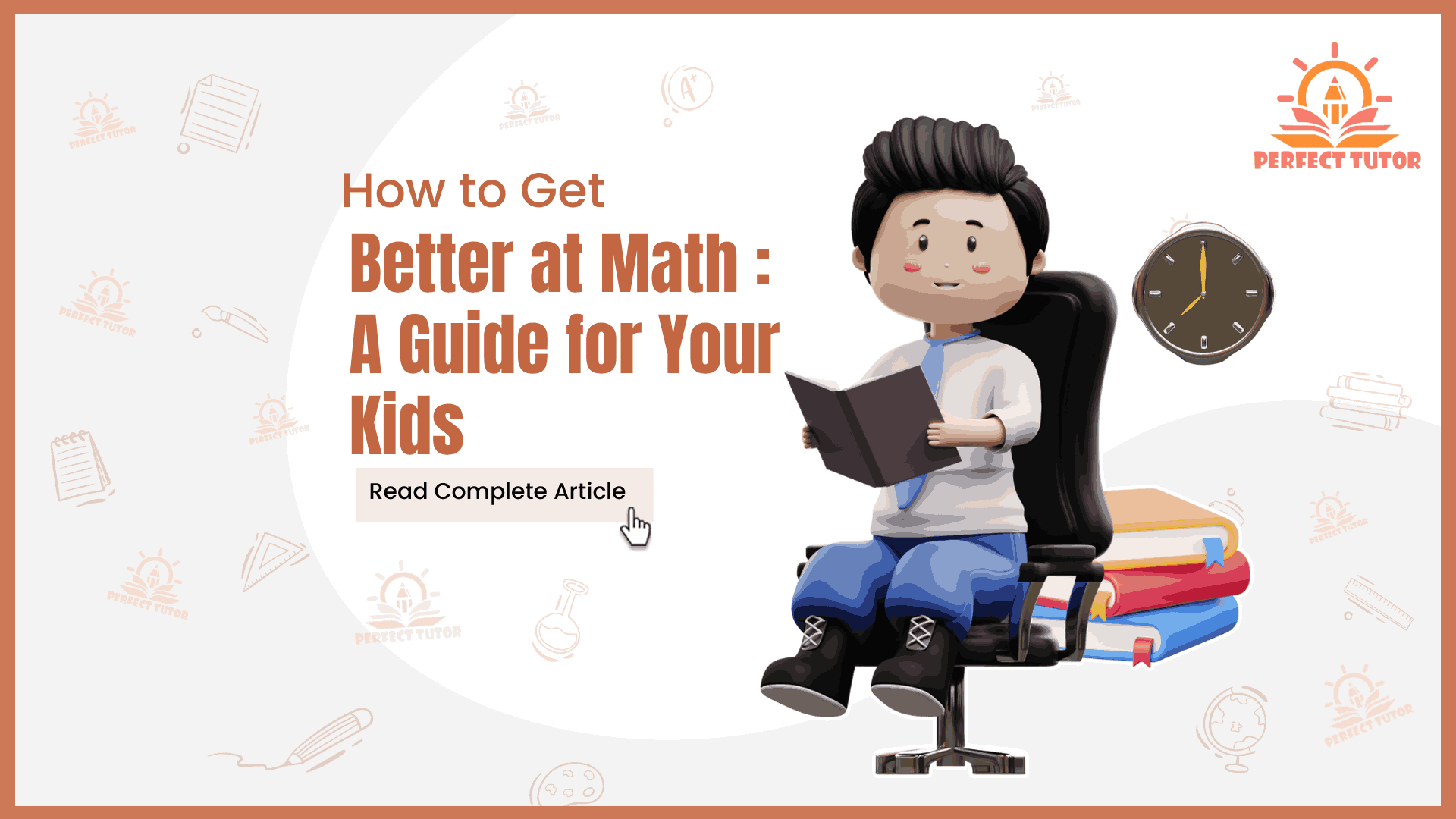How to Get Better at Math: A Guide for Your Kids
Did you know that a child's attitude toward math is often set by the age of seven? This critical insight sheds light on the importance of early math education, but it also presents a challenge: how do we promote a positive attitude toward math from the start?
Improving math skills in children involves a blend of patience, practice, and making the subject more engaging and relatable. Whether your kids are just starting school or are in the middle of their education, it's never too late to enhance their mathematical abilities.
This comprehensive guide aims to equip parents with the tools and strategies necessary to guide their children toward math mastery. Let’s explore how to make math both accessible and enjoyable for kids of all ages.
Make Math Part of Everyday Life
Including math in everyday life is a powerful strategy to improve your kids' math skills. This approach helps to show the children that it's a reality and not just something related to numbers that stays in the textbooks. Here's how you can effectively use this strategy:
Cooking and Baking Together
Measuring Ingredients: Cooking and baking are excellent ways to teach children about measurements and proportions. Ask them to measure out ingredients, doubling or halving recipes to adjust for more or fewer servings, which introduces concepts of fractions and multiplication.
Timing: Use cooking times to teach about time management, addition, and subtraction (e.g., if we put the cake in the oven at 3:00 PM and it needs to bake for 35 minutes, what time will it be done?).
Playing Games That Involve Math
Board Games: Many board games involve counting spaces, managing resources, or strategic planning. Games like Monopoly, for example, can teach money management, addition, and subtraction.
Sports and Physical Activities: Engage in sports that require scorekeeping or statistical tracking, introducing basic arithmetic and statistical concepts.
Everyday Tasks
Setting the Table: Ask your child to calculate the number of utensils needed based on the number of people.
Home Improvement Projects: Involve them in measuring for projects, like determining the amount of paint needed for a room or the length of a shelf, introducing area, perimeter, and volume calculations.
Use Interactive Learning Tools and Resources
You would have noticed that nowadays kids are highly interested in technology and they waste their time on it because they don't know what else they can use it for. What about killing two birds with one stone?
Use interactive learning tools and resources to enhance your kids' engagement and understanding of math. These tools are designed to make learning dynamic, fun, and visually appealing, which can be especially beneficial for children who might not respond as well to traditional teaching methods.
Educational Apps and Websites
Personalized Learning Platforms: Look for apps and websites that adapt to your child's learning pace and style. Platforms like Khan Academy, Prodigy, and DreamBox offer personalized math instruction.
Interactive Games: Use games that teach math concepts through play. Many of these games use storytelling and problem-solving missions to make math feel like an adventure rather than homework.
Online Videos and Tutorials
Platforms like YouTube have countless educational channels dedicated to teaching math concepts. Look for videos that use animations and real-life examples to explain topics. Channels like Numberphile and Math Antics are popular for making math engaging and understandable.
Digital Tools and Calculators
Visual Manipulatives: Websites and apps that offer digital manipulatives (like blocks, fractions circles, and number lines) can help children visualize math problems and interactively work through them.
Online Calculators and Math Tools: Introduce your child to online calculator websites (like Allmath) and tools for specific tasks e.g. graphing calculators (like Desmos).
Interactive eBooks and Online Resources
Math eBooks: Some eBooks are interactive, offering problems for kids to solve as they read through stories or lessons. These can be more engaging than traditional textbooks and often include instant feedback.
Math Blogs and Forums: For older children, participating in online math communities can be motivating. They can find solutions to their math problems, ask questions, and even help others, which reinforces their own learning.
Practice, Practice, Practice
It's a fundamental truth that mastery in any field, including math, requires consistent and deliberate practice.
For children, regular practice in mathematics not only strengthens learning but also builds confidence, enhances problem-solving skills, and helps to keep knowledge over time. Here's how to implement this strategy effectively:
Establish a Routine
Dedicated Time for Math: Set aside a specific time each day for math practice. Consistency is key, as it helps establish a habit and makes math practice a regular part of your child's routine.
Create a Productive Environment: Designate a quiet, well-lit area for study that is free from distractions. Having a dedicated space for math work can help your child focus and take their practice time seriously.
Set Realistic Goals
Short and Long-Term Goals: Setting achievable goals for each practice session, as well as longer-term academic goals, can help keep your child focused and motivated. For example, they have to complete one exercise daily and at the end of the week take a test of complete chapter.
Adapt Goals as Needed: Be flexible with goals and adjust them based on your child's progress and challenges. This way they will not stress if they fail to achieve their goal for some reason.
Encourage Self-Assessment
Review Mistakes: Encourage your child to review and learn from their mistakes. Understanding where and why a mistake was made is a crucial part of the learning process. Once they go through a mistake and solve it again, it will stay in their memory for a long time.
Use Practice Tests: Periodic practice tests and worksheets can help assess understanding and readiness for exams. They also help children get used to the format and timing of standardized tests.
Positive approach and encouragement:
Regular, positive feedback on your child’s effort and accomplishments in math can boost their confidence and enthusiasm. Remind them that it's okay to make mistakes and that persistence is key.
By celebrating both success and effort, you help instill a love for learning and that effort is as valuable as the outcome. So, even if they get tired, they will not be demotivated. Some points that can help you in this regard are:
Participate in School Events: Attend school events where your child’s academic achievements are recognized, showing that you value their educational success.
Visible Rewards and Recognition: Use stickers, charts, or certificates to visually represent progress and achievements. This form of recognition can be very motivating for children.
Share with Family Members: Encourage your child to share their math achievements with other family members. This helps to boost their confidence and motivate them to achieve more.
Showcase Their Work: Display your child’s math work, such as a challenging problem they solved or a project they completed, in a prominent place at home to show pride in their effort and achievements.
Seek Help When Needed
Recognizing when your child needs extra support and knowing how to find the appropriate help can make a significant difference in their confidence and proficiency in math.
Recognize the Signs
First, be aware of the signs that your child might need extra help in math. These can include:
Consistent frustration or anxiety with math homework.
A noticeable decline in math grades or test scores.
Avoidance of math-related tasks or discussions.
Expressions of self-doubt in their ability to learn math.
Discuss and Reassure
Talk to your child about their struggles without making them feel judged. The goal is to understand their challenges and reassure them that seeking help is a positive step, not a sign of failure.
This conversation can also help them to open up about specific areas where they feel stuck.
Explore Resources
Speak with Their Teacher: Teachers know their students well. They can tell you where your child might be struggling and recommend specific areas of focus. They may also offer additional support or resources.
Utilize School Tutoring Programs: Many schools offer tutoring programs or after-school help sessions. These can be a great starting point, as they are often free and easily accessible.
Hire a Tutor: A tutor can offer personalized, one-on-one instruction that might be more effective for your child. Look for a tutor who has experience with children of a similar age and math level.
Form or Join Study Groups: Studying with peers can be incredibly beneficial. It provides a space for children to discuss concepts, teach each other, and work through problems together. This collaborative environment can also make learning more enjoyable.
Conclusion:
By implementing these strategies, you'll not only help to improve your child's math skills but also their attitude towards the subject. Remember, the goal is to build a strong, positive foundation in math that will serve them well throughout their education and into their adult lives.
A consistent practice routine, utilizing a variety of resources, and focusing on understanding and problem-solving can dramatically improve a child's math skills.



 +91 8700847275
+91 8700847275
 +1 8009616567
+1 8009616567